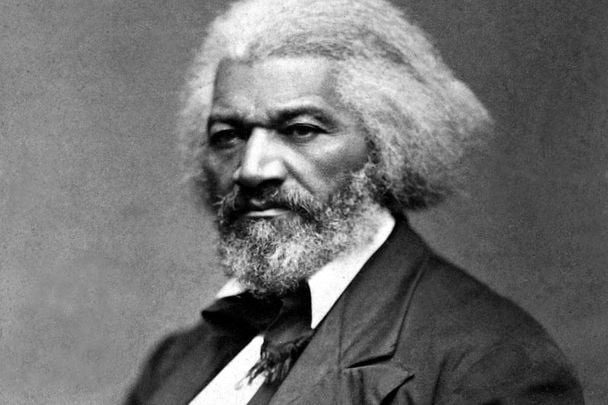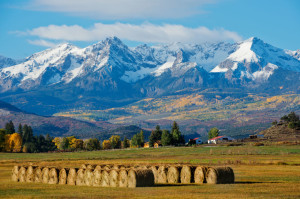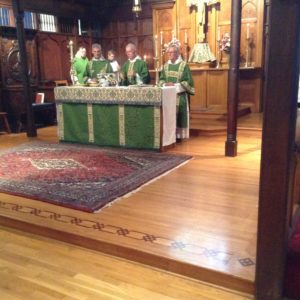A sermon preached by Christopher L. Webber at All Saints Church, San Francisco, on July 25, 2021.
I’ve lived several lives in the last ten days. I’ve had my life taken over by commitments I had made that controlled my life, sometimes it seemed every waking minute of it. They were commitments I had made – in one case several months earlier – that emerged two days apart and took over.
First, I had somehow gotten committed to reading, for a zoom-type of audience, a famous speech by the great 19th century black leader Frederick Douglass titled “What, to the American Slave, is Your Fourth of July?” Douglass made that speech to an audience of white Americans and his answer was:
“a day that reveals to him, more than all other days in the year, the gross injustice and cruelty to which he is the constant victim. To him, your celebration is a sham; your boasted liberty, an unholy license; your national greatness, swelling vanity; . . . your shouts of liberty and equality, hollow mockery; your prayers and hymns, your sermons and thanksgivings, with all your religious parade, and solemnity, are, to him, mere bombast, fraud, deception, impiety, and hypocrisy— a thin veil to cover up crimes which would disgrace a nation of savages.”
Now, it’s one thing to read that paragraph to you on Sunday morning, but quite another to read it as one small part of an hour long speech to an unseen audience. But that’s what I had agreed to do, and it took over my life as I reread and rehearsed it.
Forty-eight hours later, I was equally committed to lead a delayed 4th of July sing-along of American  patriotic songs: “Mine eyes have seen the glory,” “Lift every voice and sing,” “America the beautiful.” and a dozen more. They’re wonderful songs, but I was committed to leading this sing-along on my recorder, and I hadn’t played my recorder in public in fifty years. So I was practicing. Believe me, I was practicing, because you have to go on instinct, the notes have to become second nature. Those two commitments took over my life for 48 hours and I survived.
patriotic songs: “Mine eyes have seen the glory,” “Lift every voice and sing,” “America the beautiful.” and a dozen more. They’re wonderful songs, but I was committed to leading this sing-along on my recorder, and I hadn’t played my recorder in public in fifty years. So I was practicing. Believe me, I was practicing, because you have to go on instinct, the notes have to become second nature. Those two commitments took over my life for 48 hours and I survived.
Haven’t you had that happen? Haven’t you had your life taken over once or twice, maybe often, in a similar way: a project at work with a deadline, a wedding reception to organize, a calling committee to find a new priest for All Saints Church. You can’t do these things and keep up with the latest Washington scandal or that book you always wanted to read. Our lives sometimes get taken over by our commitments. Usually we survive, and we learn things about ourselves – good and bad – and we are changed in good ways and bad.
Not every book or project asks us for that commitment. I’m reading a book just now about Jimmy Hoffa and the Teamster’s Union. I’m gaining new insights into another aspect of American life: murder, black mail, betrayal. It’s interesting, but I can put it down. I can put Hoffa down, but not Douglass. I couldn’t just pick up Douglass’ speech for a few minutes and put it down again. To live with Frederick Douglass’ speech full time for a few days makes a difference: you live inside another man of a different color, a different time, a radically different experience of America, and you see America with his eyes, and you are changed.
St. Paul was changed. You know the story of St Paul on the road to Damascus. He saw a great light and he heard a voice and he was changed. But just before he started that journey he had been an official witness to the death of Stephen, the first Christian martyr, stoned to death for his faith in Jesus. As Paul rode north toward Damascus how could he avoid reflecting on that witness? I think it took over his mind as he rode, mile after mile, and he saw again the stones fly and he heard again Stephen as he died praying forgiveness for his murderers. Paul relived that day and it took over his  mind and heart and life, and he was changed. But the light and the voice were only the outward, visible, audible climax of an event that had already taken over Paul’s life and changed him for ever.
mind and heart and life, and he was changed. But the light and the voice were only the outward, visible, audible climax of an event that had already taken over Paul’s life and changed him for ever.
Is your relationship with Jesus like that? That’s the question St. Paul puts to us in the second reading this morning. I pray,” he says, “that you may . . . know the love of Christ that surpasses knowledge, so that you may be filled with all the fullness of God.” That you may know the unknowable and be filled with the inexhaustible and be changed forever: that’s Paul’s prayer for us. It should be our prayer for ourselves: “To be filled with all the fulness of God.” “That you may be strengthened,” he continues, “strengthened in your inner being with power through his Spirit, and that Christ may dwell in your hearts through faith, as you are being rooted and grounded in love.
“Strengthened in your inner being – as you are being rooted and grounded in love.” That you and I should be changed. I think that’s why we’re here.
Isn’t that why we’re here? We’re here to be changed. And Paul tells us how that change comes about: that we must be “rooted and grounded in love.”
I’ve read some books recently that help me understand what that means. One book was about trees and one was about mushrooms. Trees, it turns out, are more complicated than we might have thought. We might have thought that a tree only needed to stand there and soak up the sunshine and rain, let the roots reach down and pull in what’s needed and have a nice life. It’s not that easy. What we’ve been  learning lately is that the roots do go down, but the roots also go out. And as they spread, they intersect with the roots of other trees and with the myscelliae of mushrooms, the fibers that mushrooms send out to make more mushrooms but also to enrich the soil in which the tree has its roots. So the roots of the tree interact with the mushroom fibers and interact also with the roots of other trees, sharing nutrients and actually passing on messages. The roots the trees put down are a fibrous web of communication through which the trees cooperate for the welfare of the forest. Every single tree is rooted and grounded in a rich soil that is shared with other trees.
learning lately is that the roots do go down, but the roots also go out. And as they spread, they intersect with the roots of other trees and with the myscelliae of mushrooms, the fibers that mushrooms send out to make more mushrooms but also to enrich the soil in which the tree has its roots. So the roots of the tree interact with the mushroom fibers and interact also with the roots of other trees, sharing nutrients and actually passing on messages. The roots the trees put down are a fibrous web of communication through which the trees cooperate for the welfare of the forest. Every single tree is rooted and grounded in a rich soil that is shared with other trees.
Aren’t we like that? Don’t we put down roots here in this place that not only draw up the life saving food we need but draw from others and also enrich others so that we become a forest of Christian trees – Christian trees – mutually dependent and mutually supportive and growing together toward the sun, toward the Source, Guide, and Goal of all life, from whom all life comes and toward whom all life goes. Hold onto that image of inter-connectedness, it’s one of the hallmarks, I think, of catholic Christianity as distinct from Protestant Christianity. Its about corporate life more than individual conversion. It’s about communion. It’s about living in communion, It’s about community. It’s about church. It’s about the kind of total commitment that changes lives.
 Think of ourselves that way this morning: a small forest here in this vast city, but a forest in which we grow by soaking up the gifts we are offered: the Word proclaimed, the sacrament received. Maybe that gift is given at the altar as it used to be; maybe in our pews as we need to do now, but always it’s given corporately, always together, never as solitary individuals never as the lone oak in an empty landscape, always as a family, a forest, a communion of saints, a living body of praise to the glory of God and the transformation of our lives.
Think of ourselves that way this morning: a small forest here in this vast city, but a forest in which we grow by soaking up the gifts we are offered: the Word proclaimed, the sacrament received. Maybe that gift is given at the altar as it used to be; maybe in our pews as we need to do now, but always it’s given corporately, always together, never as solitary individuals never as the lone oak in an empty landscape, always as a family, a forest, a communion of saints, a living body of praise to the glory of God and the transformation of our lives.
Thank you Chris! I heard the obvious yesterday in another church, about Christ feeding the five thousand. Yours makes a good analogy and summation of how and where the food came for the feast and the twelve baskets of leftovers. To quote the line in Lawrence of Arabia, “it was written then.” Our New England forests are going through transitions –chestnut blight, Dutch elm disease, red pine scale, and Emerald ash borer to name some in my lifetime. One wonders if they are God’s plan or nature’s? Or poor management of resources by humans, resulting in wildfires, heavy wind and rain storms, floods?